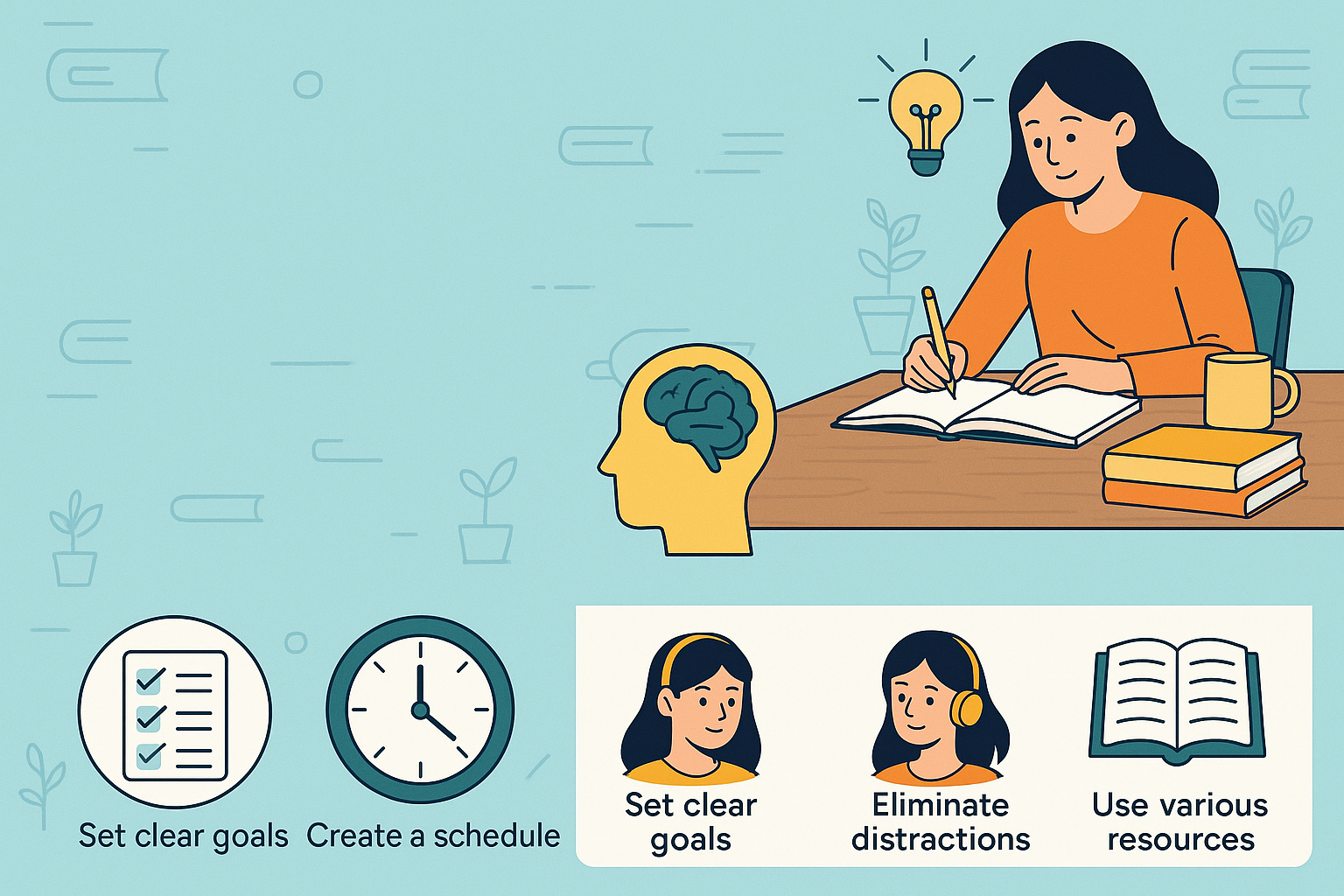Studying is an important part of every student’s life, but depending only on classroom lessons is not enough to achieve true success. To grow as an independent learner, students need to practice self study. It is one of the most powerful ways to improve knowledge, boost confidence, and build strong learning habits. Even the best preschool in Whitefield encourages children to develop early self-learning skills, as it lays the foundation for lifelong academic success.
In this blog, we will explore the importance of self study, its benefits, effective techniques, and practical tips that can help students learn better.
What is Self Study?
Self study means learning on your own, without constant guidance from a teacher. It is not just about reading textbooks or solving assignments but about taking responsibility for your learning. Students who practice self study decide what to learn, how to learn, and when to learn.
This makes learning more personal, flexible, and effective. It encourages curiosity and helps students explore topics beyond the classroom syllabus.
Importance of Self Study
The importance of self study lies in the fact that it makes students independent thinkers. Teachers can provide guidance, but students must practice and revise by themselves to master any subject.
For example, if a student attends a math class but never solves problems alone, they will struggle during exams. However, a student who practices self study develops problem-solving skills, patience, and confidence.
Self study is also important because it prepares students for higher education and real-life challenges where independent learning is essential.
Benefits of Self Study
There are many benefits of self study that make it an essential habit for students. Some of the key ones include:
1. Better Understanding of Concepts
When students learn on their own, they take time to understand each concept deeply instead of just memorizing it.
2. Builds Self Discipline
Self study teaches students how to manage time, stay consistent, and practice regularly. These habits are useful not only in academics but also in life.
3. Improves Focus and Concentration
Since students learn at their own pace, they can avoid distractions and focus better on topics that matter most to them.
4. Encourages Curiosity and Exploration
With self study, students are free to read extra books, explore online resources, and research beyond their syllabus.
5. Increases Confidence
The more students practice self study, the more confident they become in solving questions, answering exams, and expressing their knowledge.
These benefits of self study show why it is a skill every student should develop early in life.
Self Study Techniques That Work
Many students wonder which self study techniques are effective. The truth is that every student learns differently, but some strategies work well for most learners. Here are a few practical techniques:
- Make a study timetable – Allocate fixed hours for subjects and stick to the plan.
- Use active recall – Test yourself after reading instead of just re-reading notes.
- Break study sessions into chunks – Short, focused sessions work better than long, tiring ones.
- Summarize lessons in your own words – Writing down what you understood helps memory retention.
- Use visual aids – Mind maps, charts, and flashcards make learning faster.
- Practice regularly – Revision and practice are key to mastering any subject.
Using these self study techniques helps students learn more effectively and avoid last-minute exam stress.
How to Do Self Study Effectively
Knowing the importance of self study is one thing, but the real question is: how to do self study effectively? Here are some practical steps:
- Set clear goals – Decide what topic you want to finish each day.
- Create a distraction-free space – Choose a quiet place without mobile or TV distractions.
- Follow a timetable – Consistency is the key to success.
- Use different resources – Combine textbooks, online videos, and notes for a complete understanding.
- Take breaks – Short breaks help refresh the mind and improve focus.
- Track progress – Check what you have learned at the end of each week.
These steps show that knowing how to do self study effectively is about planning, discipline, and smart strategies.
Developing Self Study Skills
To succeed as an independent learner, students need to build strong self study skills. These include:
- Time management – Dividing time wisely between subjects.
- Note-making – Writing clear, short notes for revision.
- Critical thinking – Asking questions and understanding concepts deeply.
- Self-motivation – Pushing yourself to study even when you don’t feel like it.
By practicing regularly, students develop these self study skills naturally, which help them in academics and beyond.
Self Learning Strategies for Success
In addition to techniques, adopting self learning strategies ensures long-term success. Some proven strategies are:
- Teach what you learn – Explaining to a friend or even to yourself reinforces learning.
- Practice past papers – Solving old exam papers improves speed and accuracy.
- Mix subjects – Studying different subjects in a day avoids boredom.
- Reward yourself – Small rewards after finishing a topic keep motivation high.
These self learning strategies make studying enjoyable and effective.
Importance of Self Discipline in Study
No matter how many tips or strategies a student uses, success is impossible without self discipline in study. Discipline means creating a routine and following it sincerely.
For example, if a student decides to study science at 5 PM, discipline means sitting down and focusing at that time every day. Over time, this habit creates consistency and reduces procrastination.
Discipline is the backbone of self study, and students who master it achieve better results.
Improving Focus for Self Study
One common challenge students face is losing concentration. Improving focus for self study is possible with the following tips:
- Keep your phone away during study time.
- Study in a clean and quiet space.
- Use the Pomodoro technique (25 minutes study + 5 minutes break).
- Stay hydrated and get enough sleep.
- Revise regularly instead of cramming.
When students improve focus, self study becomes more productive and less stressful.
Conclusion
Self study is one of the most powerful habits that students can develop. It makes them independent, disciplined, and confident learners. The importance of self study lies in its ability to prepare students not just for exams but also for lifelong learning. Just like learning good manners for kids helps in building character and values, self study helps in shaping strong academic skills. By understanding the benefits of self study, using the right self study techniques, and practicing self learning strategies, students can achieve academic excellence. With discipline and consistency, self study becomes the key to success in school and beyond.
Frequently Asked Questions (FAQs)
Q1. What is self study?
Self study is learning on your own, without depending completely on teachers, by using books, notes, and other resources.
Q2. Why is self study important?
The importance of self study is that it makes students independent learners, improves confidence, and builds problem-solving skills.
Q3. What are the benefits of self study?
The benefits of self study include better focus, discipline, curiosity, and strong academic performance.
Q4. How can I do self study effectively?
You can do it effectively by setting goals, avoiding distractions, using multiple resources, and practicing regularly.
Q5. What skills are needed for self study?
Important self study skills include time management, note-making, critical thinking, and self-motivation.









